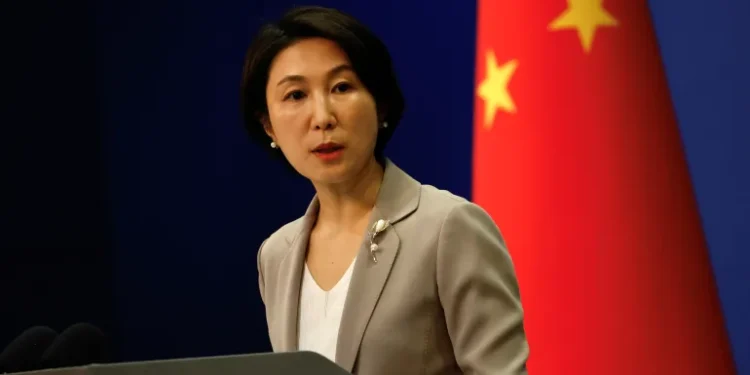China has firmly denied accusations from Ukrainian President Volodymyr Zelenskyy that it is attempting to undermine the upcoming peace summit in Switzerland, scheduled for June 15-16. Speaking on Monday, China’s Ministry of Foreign Affairs spokesperson Mao Ning emphasized that China supports all efforts aimed at fostering peace in the Russia-Ukraine conflict. Mao Ning addressed the issue during a press conference, rejecting Zelenskyy’s claims that China, alongside Russia, is pressuring other nations to avoid the summit. She reiterated China’s stance, stating, “China has never fanned fire or fueled the flames.” She highlighted that China’s position on the peace process is “open and transparent,” and expressed hope that their intentions would gain understanding and support from all parties involved. More than 80 delegations have confirmed their attendance at the summit in Burgenstock, Switzerland. The summit aims to lay the foundation for a peace process over four years after Russia’s full-scale invasion of Ukraine. However, in a recent speech in Singapore, Zelenskyy accused Russia and China of using diplomatic influence to discourage participation in the summit. He did not specify which countries were being pressured. “Russia, using Chinese influence in the region, using Chinese diplomats also, does everything to disrupt the peace summit,” Zelenskyy stated at the Shangri-La Dialogue, a prominent security forum. China maintains a stance of neutrality in the conflict, despite its increasingly close ties with Moscow since the invasion began. Last month, Russian President Vladimir Putin visited Beijing, where he received a ceremonial welcome and engaged in discussions with Chinese President Xi Jinping. The visit underscored the growing relationship between the two countries, particularly in terms of trade, which has helped Russia mitigate the impact of Western-led sanctions.
While China claims neutrality, US, Ukrainian, and other intelligence agencies have reported that Chinese-made parts are being found in Russian weaponry, suggesting indirect support. However, China denies directly supplying arms to Russia.
Switzerland had hoped for China’s participation in the peace conference, but Chinese Foreign Minister Wang Yi indicated last week that Beijing would not attend. China has been advocating for a peace conference that includes equal participation from all parties, including Russia, which has not been invited to the Swiss summit. Ukraine’s peace plan calls for the complete withdrawal of Russian troops from its territory, the restoration of its post-Soviet 1991 borders, and accountability for Russia’s actions. In contrast, China has proposed its own peace plan. President Putin praised the Chinese plan last month, stating that it showed Beijing’s understanding of the conflict’s “root causes” and “global geopolitical meaning.” However, the 12-point Chinese plan, released a year after the invasion, received a lukewarm reception due to its lack of concrete proposals. “There is still a clear gap between the arrangements for the meeting and the demands of the Chinese side, as well as the general expectations of the international community,” Mao Ning stated, explaining why China finds it difficult to participate in the summit.
As the date for the peace summit approaches, tensions remain high. The international community continues to hope for a resolution to the ongoing conflict, which has resulted in significant loss of life and widespread destruction in Ukraine. The upcoming summit in Switzerland represents a critical opportunity to advance peace talks and address the humanitarian crisis that the war has exacerbated. In the meantime, China’s denial of Zelenskyy’s accusations and its call for a more inclusive peace conference reflect its complex position in the global geopolitical landscape. As diplomatic efforts continue, the world watches closely to see if the proposed peace summit can lead to meaningful progress in resolving the Russia-Ukraine conflict.
















